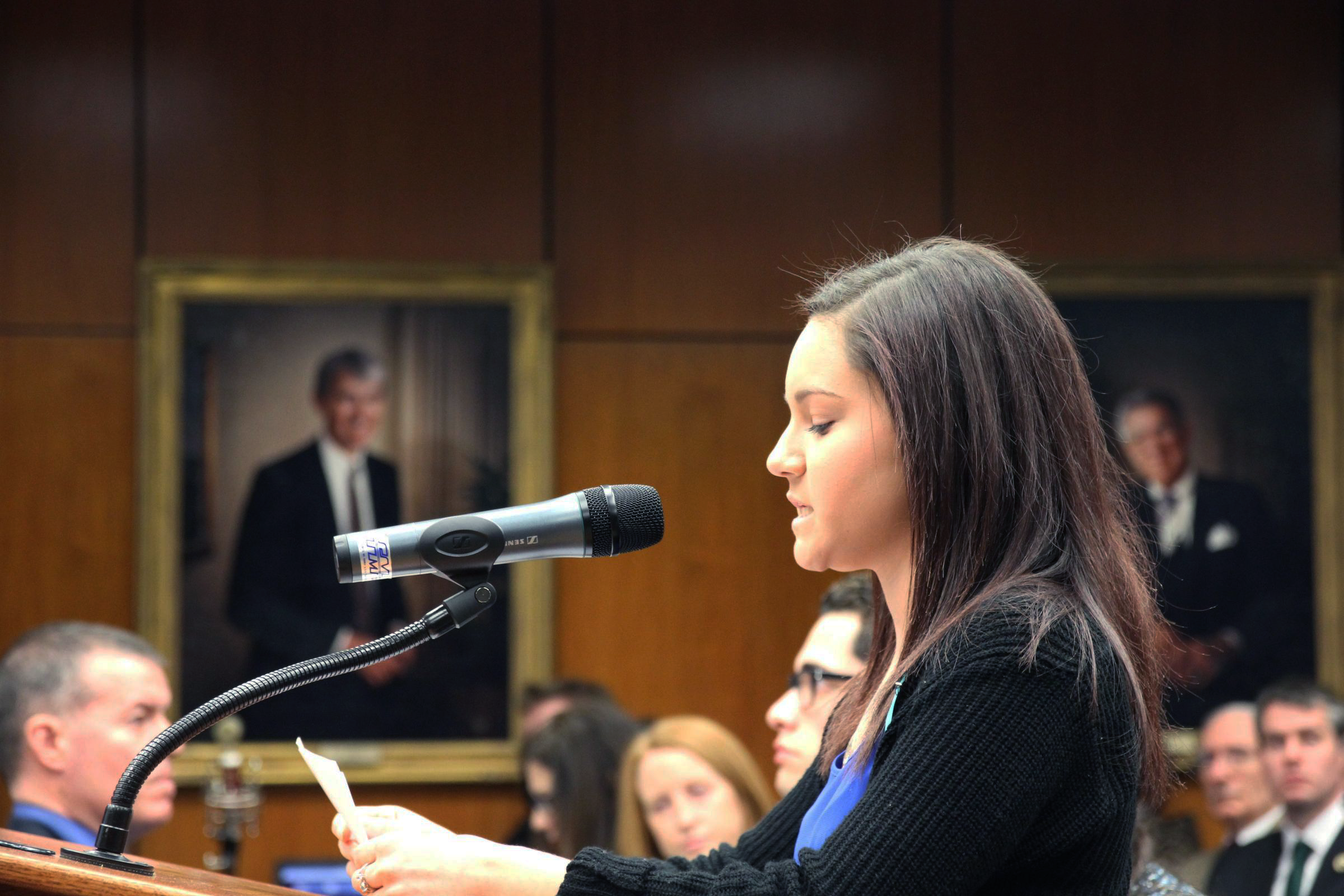For Rachael Denhollander, fighting for change means being on the road.
She’s given commencement speeches. She spoke at Harvard. And she spends some of her time speaking to the community that means the most to her: her church community.
Rachael and her husband are Reformed Baptists, but Rachael’s message is non-denominational.
Last May, on a warm, sunny evening, she visited New City Fellowship in Grand Rapids, Michigan.
Rachael’s message isn’t a pretty one, necessarily.
She wants people to be radically honest about abuse. To be willing to have difficult, uncomfortable conversations in their own communities. The kinds of conversations that can put relationships or jobs at risk.
Don’t just focus on the parts of her story that feel nice, she says. Like how she offered Larry Nassar forgiveness at his sentencing.
“I found it very interesting that when I gave my victim impact statement, I delved deeply into the idea of God’s wrath and the pursuit of justice,” she told the congregation. “In fact, at that point I had dedicated a year and a half of solid, daily effort in the pursuit of justice at great personal cost to myself and my family. And yet, every single evangelical outlet that published or commented on any part of my statement discussed how Godly it was to offer forgiveness, but not one that I saw discussed how Godly it was to pursue justice.”
She told this congregation: God calls on you, as Christians, to speak up for the defenseless. To not hide or bury sexual abuse. To support victims who come forward.
After the speech, Rachael stood at the front of the church, greeting people, one at a time. There was a line all the way to the back of the church.
And this eight-month pregnant, superstar of a woman stood there for more than an hour. Shaking hands, hugging fellow survivors, listening patiently as people thanked her and shared their own stories of abuse or their own despair.
Rachael’s mom, Camille Moxin, sat nearby, watching her daughter. Camille said that at this point in this whole ordeal, things are a little easier — but then she stopped herself.
“Easier is probably not the right word to use,” she said. “I’m trying to think of what the right word would be.”
She thought for a moment.
“Yeah, I don’t know what that word would be because easier is not it.
But … it’s good to see it being able to be used for good.”
And at the end of the day, that’s what these women and girls want. For some part of this to be used for good.

